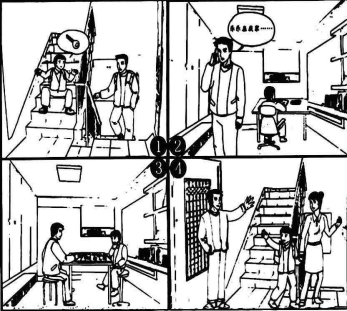题目内容
语法填空
阅读下面材料,在空格处填入适当的内容(1个单词)或括号内单词的正确形式。
Working out helps you deal with stress in your job, relationships or any area of life. It is possibly 1. exercise is a form of stress itself and helps your body deal with it in a better way. Australian researchers found that those 2. did 30 minutes of aerobic (有氧的) exercise three times a week responded better to stress and had 3. (low) blood pressure.
Even 4. little exercise, from an easy 10-minute walk to an intense aerobics, seems to decrease your feeling 5. anxiety. Working out regularly may make you smarter now and lessen the 6. (possible) that you’ll lose brain function at your age. According to a recent animal study, exercise can 7. (actual) help the brain develop new cells. In the last few years, it 8. (show) in several studies that regular aerobic exercise can improve the quality of sleep. Naturally, this can make you less tired and be able to function better during the day.
Finally, there’s one more reason to keep 9. (exercise). When you work out regularly, your body simply functions better and you are healthier and less likely 10. (suffer) painful physical condition.
 阅读快车系列答案
阅读快车系列答案

